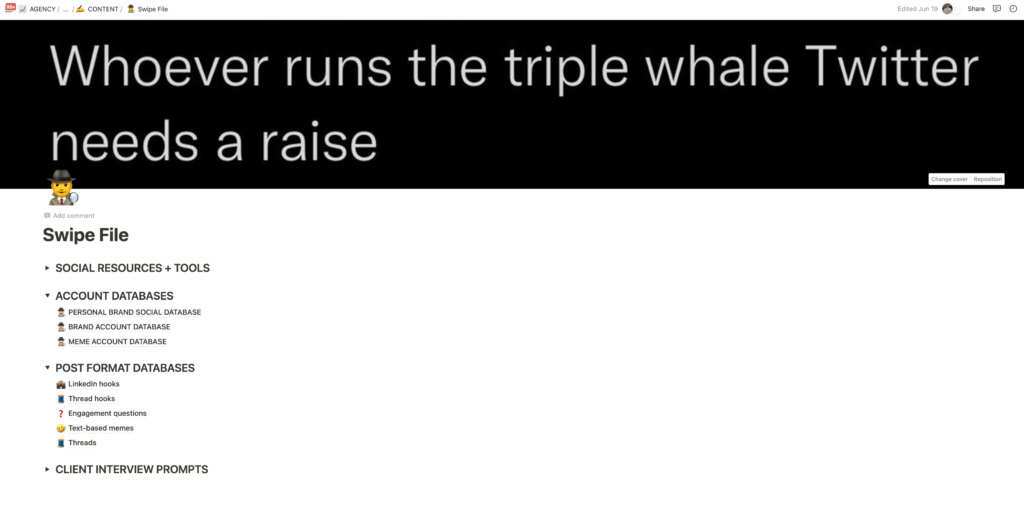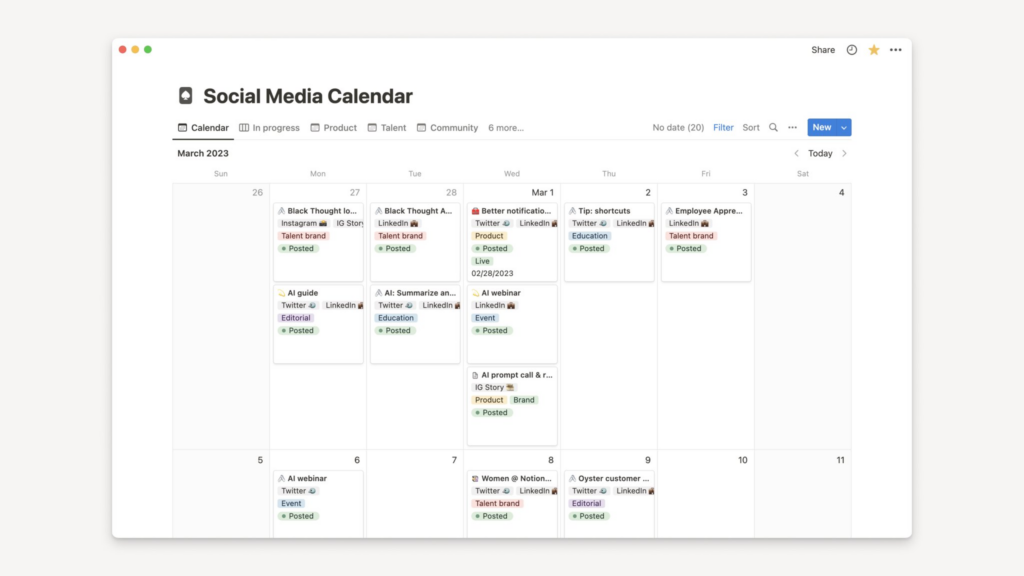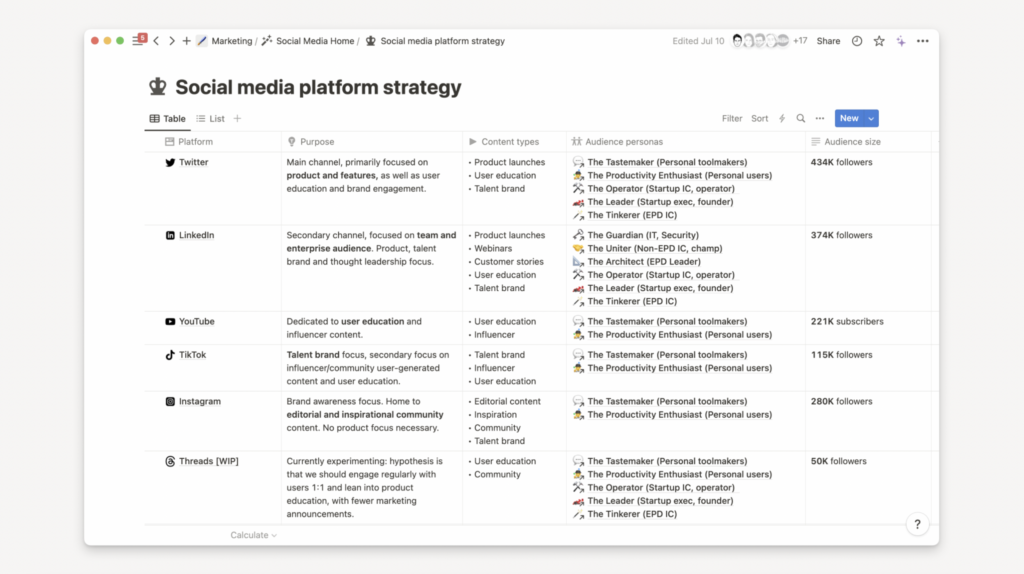07 August 2023 | Marketing
How Notion runs their social media strategy
By
Building content calendars, turning down ‘bad’ requests other departments, and more

Last Thursday, 205+ startups marketers got to sit down with Alex Hao and I for an hour to discuss Productivity Systems for Social Media Managers.
The feedback we got was phenomenal (I have another event coming in September btw). And here are some of the best insights, directly from Alex’s experience scaling Notion’s social audience from 0 → 1.5M cumulative follower across platforms in 4 years.
(The following is written in Alex’s POV)
🗓 How we think about Content Calendars

- Content calendars need to be flexible — I use a Notion database because it lets me show the same data as a list, calendar, Kanban board, and more (this Tweet has screenshots)
- Think about the purpose: Is your content calendar for you? Or is it for your client? Or both? That’ll inform the design.
- This is my Notion template: https://www.notion.so/templates/notions-social-media-home
🧠 How we think about Channel Strategy

- “Strategy” is a tough thing to tackle in social media. It moves so fast that if you “strategize” like a traditional marketer, the opportunity to make something happen has already passed.
- It can be more effective to think about two sub-components: “identity” and “experimentation”
- Identity: What is your brand? What is your goal? What is non-negotiable? What needs to be consistent? If you don’t have an identity on social media, then you won’t be able to do the next thing, which is…
- Experimentation: Trends, new formats, new channels, new ideas. This is what social media is for! Try new things. But again, you need an identity first to anchor your experimentation on + make sure your audience doesn’t get whiplash from your content.
- Try starting with a one-sentence purpose for each channel. If you can’t think of one… maybe you don’t need that channel yet.
🚫 Ways to tell your team “no” without being mean

- Sometimes ideas are bad. And everyone thinks they can run social media, so you have to be protective of your time and know when to tell a teammate no.
- Instead of saying “your idea is bad” (even if it is), I try to align my “no” with one of the following reasons:
- Production quality: “At the moment, we don’t have the design/copywriting/video resources to execute this idea properly.”
- Efficacy: “Social actually isn’t the best channel to distribute this, since it’s an evergreen product education resource.”
- Audience: “This is a great talent brand piece, but our audience won’t find this relevant or useful.”
- And some ways to redirect:
- Expand scope beyond social: “Maybe we can turn this idea into a campaign — that way we can get the design team involved.”
- Other channels: “Have you considered lifecycle emails? They’re way better for targeting the correct segment of users.”
- Personal sharing: “Let’s find a teammate who can share this on LinkedIn. We’ll reshare that from the brand account.”
(Ok, back to Tommy’s POV)
I love all of this from Alex. He has a unique experience in that he’s been with Notion since it was a true startup (he was employee ~40), and has been around through the company’s insane growth over the past 4 years.
Marketing functions change quite a bit as you go from startup → scale-up → mature company.
Anyway, bookmark this one. I have a feeling you’ll want to come back to this from time to time.
Before you go, I wanted to share the full replay of the event with you in case you missed it. Just click here to watch the full talk.
Enjoy!